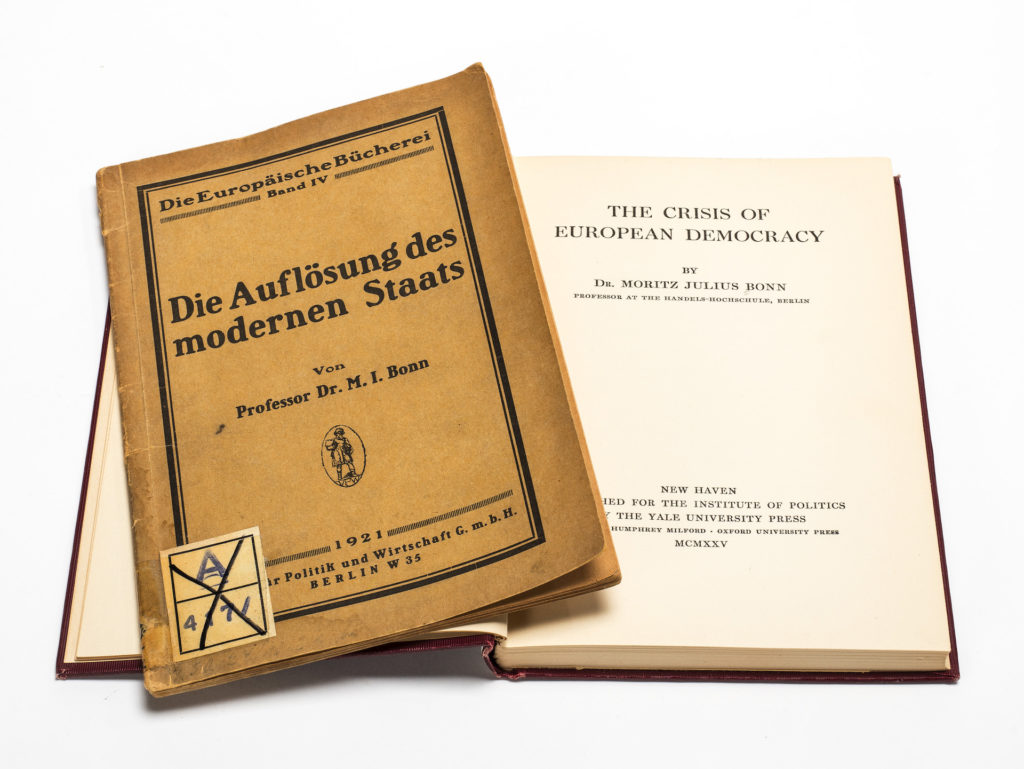
Moritz Julius Bonn was born on June 16, 1873 in Frankfurt am Main as son of the banker Julius Philipp Bonn and Elise Brunner of Hohenems. Following studies in Heidelberg, Munich, Vienna, Freiburg, and London as well as research visits in Ireland and South Africa, he started his successful career as a political economist. In Italy, he met Theresa Cubitt, a native of England and married her in London in 1905. That same year, he completed his habilitation on English colonial rule in Ireland. From 1914 to 1917, he taught at various universities in the USA. As a political consultant, he took part in numerous postwar conferences, wrote on the topics of free trade and economic reconstruction, and drafted critical studies on colonialism as well as European democracy, which he considered viable only if based on pluralism and ethnic diversity. As rector of the Berlin College of Commerce and head of the Institute of Finance, founded by him, he eventually became one of the leading economic experts of the Weimar Republic. In the wake of the National Socialist seizure of power in 1933, Bonn was forced to emigrate, initially to Salzburg, then London, and finally to the USA where he began his autobiography Wandering Scholar (German: So macht man Geschichte). After the war, he permanently settled in London where he passed away in 1965. Moritz Julius Bonn had spent his childhood summers at his grandparents’ in Hohenems and also
